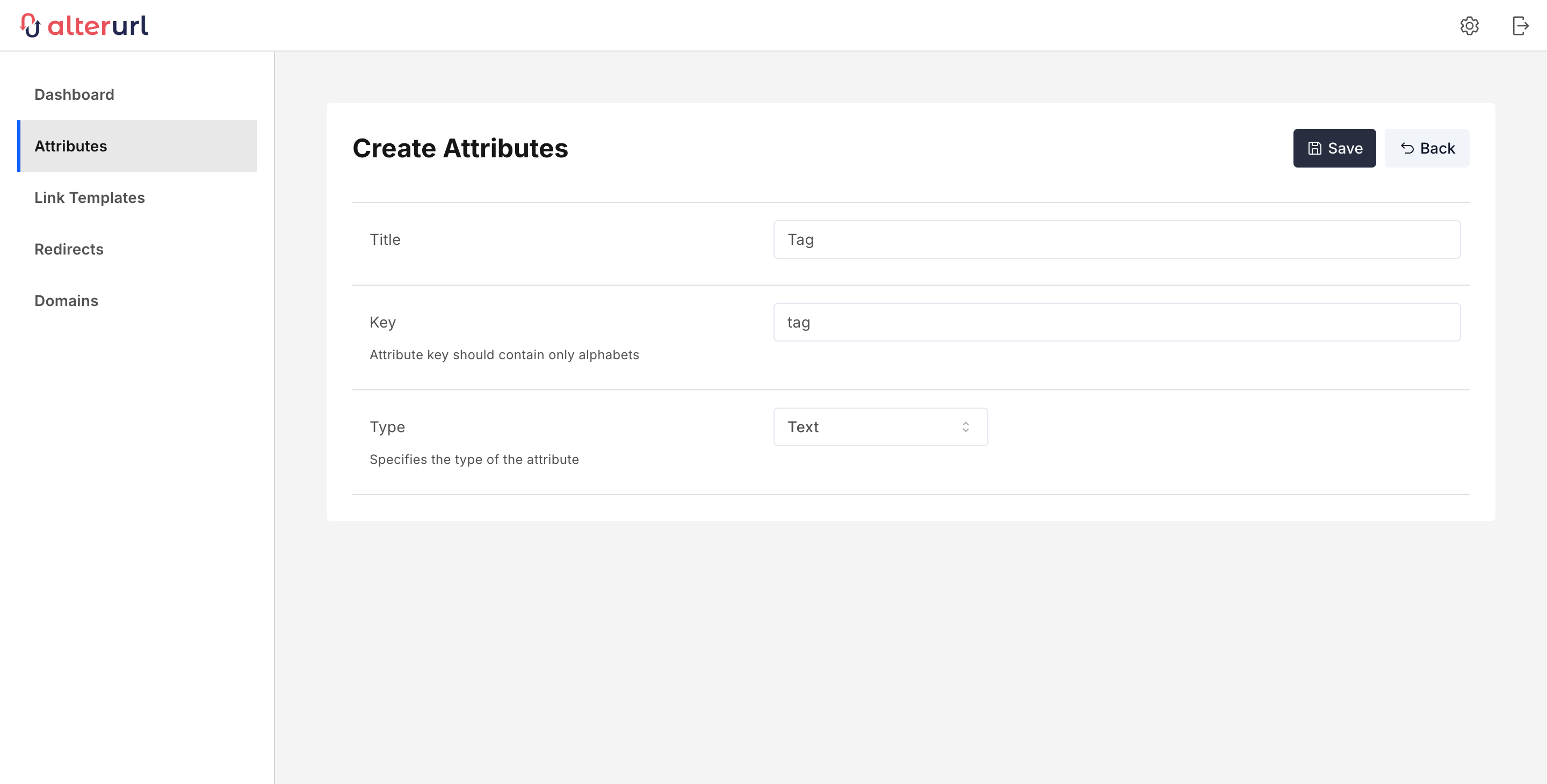Overview
Attributes in AlterURL provide a powerful way to customize URL redirection strategies by applying specific rules based on either system-generated or user-defined attributes.
System Attributes
System attributes, like device type or geographic location, are automatically detected and allow redirection rules to be set for different user environments. This helps tailor user experiences based on preset data like country or device.
Custom Attributes
Custom attributes enable highly specific redirection rules based on personalized data points. These user-defined attributes must be passed as query parameters when requesting a redirection. For example:
https://atur.io?workspaceId=fq4ect3ig8s&attribute1=<value>
In this case, the custom attribute (e.g., attribute1) can dynamically influence where the user is redirected, based on the value provided.
By combining system and custom attributes, businesses can optimize link redirection strategies, providing tailored content based on user-specific criteria.

Attribute Key
The Key value is used as a query parameter when interacting with redirection requests. The Key is case-sensitive and must contain only alphabets or underscores (_).
Attribute Type
The Type defines the kind of data for the attribute. It determines how the redirection rule will handle and validate the attribute data for redirection requests.
Text
A string value. This type of attribute allows you to validate it as a string in redirection rules, such as "string starts with," "string contains," etc.
Date
The Date attribute type enables date-based validation in redirection rules, such as "date between," "date start," and others.
Option
The Option attribute type allows you to define predefined values which will be pre-populated while creating redirection rules.
Along with custom attributes, AlterURL supports several preconfigured attributes: